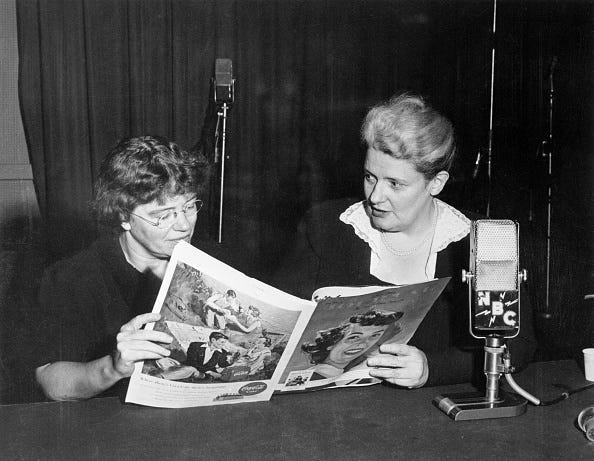|
 |
The Writer's Almanac from Saturday, November 16, 2013
"Baloney" by Louis Jenkins, from Tin Flag: New and Selected Prose Poems. © Will o' the Wisp books, 2013.
ORIGINAL TEXT AND AUDIO - 2013
It was on this day in 1913 that the first volume of Marcel Proust's In Search of Lost Time was published. He'd begun work on it in 1909, after taking a nibble of a French pastry cookie dipped in tea. He took it to several publishers, and it was turned down by each one of them. The editor of a prestigious French literary magazine advised that it not be published because of syntactical errors. And one editor said, "My dear fellow, I may be dead from the neck up, but rack my brains as I may I can't see why a chap should need 30 pages to describe how he turns over in bed before going to sleep."
So in the end, Proust had to come up with the money himself to self-publish the book, and the first volume appeared in print on this day 100 years ago. He worked on the story for the rest of his life. It was published in seven volumes, and in total it's about 1.5 million words long.
It's the birthday of the playwright George S. Kaufman, born in Pittsburgh, Pennsylvania. He held a variety of sales jobs before he became a writer; then Franklin Pierce Adams featured Kaufman's work in his column, and on F.P.A.'s recommendation, Kaufman was given a column of his own in 1912, for the Washington Times.
He was the drama critic for The New York Times from 1917 to 1930, and found his niche as a playwright during that period. Nearly all of his plays were collaborations. He worked with many of the best writers of the day, including Marc Connelly, Ira Gershwin, Moss Hart, and Edna Ferber, and co-wrote many hits, including Dinner at Eight (1932), You Can't Take it With You (1935), and The Man Who Came to Dinner (1939). He wrote only one play by himself: 1925's The Butter and Egg Man, a satire on the theater world. He was an apt satirist, but realized that the genre wasn't often a big moneymaker; he said, "Satire is what closes on Saturday night." He wrote musicals for the Marx Brothers, including Animal Crackers (1928) and A Night at the Opera (1935), and was one of the few writers that they approved of and even openly admired.
He loved playing poker and bridge, but was notoriously hard on his bridge partners. He was lean, morose, and a hypochondriac, and he had affairs with some of the most beautiful women on Broadway. His sharp wit also earned him a seat at the Algonquin Round Table, about which he quipped, "Everything I've ever said will be credited to Dorothy Parker." A sample of what he did say: "Epitaph for a dead waiter: God finally caught his eye." And, "I thought the play was frightful but I saw it under particularly unfortunate circumstances. The curtain was up."
It's the birthday of the "First Lady of Radio," mostly forgotten today, Mary Margaret McBride, born in Paris, Missouri (1899). She was one of the first radio interviewers to bring the techniques of newspaper journalism to the airwaves, and in the first 20 years of her syndicated program, she interviewed more than 30,000 guests from the world of politics, literature, arts, and entertainment. In the late 1940s, she had 6 million daily listeners.
She retained her Missouri twang despite spending most of her adult life in New York City. She was known for being an exceptionally well-prepared interviewer, and she stayed up late every night to read her guests' books. She never announced in advance the name of the guests who would appear on the show, so people tuned in each day not knowing whom to expect.
She made daytime radio profitable. She delivered the ads herself, and she only advertised products that she herself actually would want to use, and refused to endorse cigarettes or alcohol.
It's the birthday of novelist Andrea Barrett, born in Boston, Massachusetts (1954). She grew up on Cape Cod and spent most of her time near the ocean, fascinated by sea life. She decided to study biology in college and went on to study zoology in graduate school.
At some point, she decided she was more interested in history than biology, and started studying medieval religion. It was while she was writing papers about the Spanish Inquisition that she realized she should be a writer. She said: "I'd go to the library and pull out everything, fill my room and become obsessed with the shape and the texture of the paper, and the way the words look, trying to make it all dramatic. At some point I realized: 'Hey, this isn't history, and I'm not a scholar.'"
She worked as a secretary in medical labs, trying to write. After years of struggling to finish her first novel, she showed it to a writer at the Bread Loaf Writers' Conference, and he told her to throw it away. She was so upset that she cried for a day, but then she took his advice and wrote her novel Lucid Stars, which was published in 1988. Her collection of short stories Ship Fever (1996) became a best-seller after winning the National Book Award.
Because so many of Barrett's books deal with scientists, she constantly has to do research before she writes. She said: "I love research ... I describe a [sailor] character who has to go belowdecks, and I think, 'So what is belowdecks?' ... Then I have to get books about ship building, ship history, immigration history, so I can write a little more ... I love learning that way — lurching from subject area to subject area. When you're lit by your own purposes, it's astonishing how easily you can leap into a new field and get to that center of passion."
In order to finish her novel The Voyage of the Narwhal (1998), about a group of British scientists exploring the Arctic, Barrett traveled to the Arctic herself. Andrea Barrett said: "I think science and writing are utterly the same thing. They are completely rooted in passion and desire, if they're any good at all. You can fall in love with the natural world in the same way you fall in love with a person. There's that same sense of helplessness, of lacking control over how much of your life you want to devote to it."
Barrett's novel Servants of the Map (2003) was a finalist for the Pulitzer Prize. Her newest novel, Archangel (2013), came out this year.
Be well, do good work, and keep in touch.®
Some people believe the Creator of the Universe sent His Son to Earth in the form of an infant born to a virgin woman and her faithful husband, Joseph. Other people don’t believe this but enjoy being with those who do — and enjoy a party (parties being more fun if there’s a reason and what better than a birth?). We hope you can join us for A Prairie Home Companion Christmas. Check out this linkfor full details!
If you are a paid subscriber to The Writer's Almanac with Garrison Keillor, thank you! Your financial support is used to maintain these newsletters, websites, and archive. If you’re not yet a paid subscriber and would like to become one, support can be made through our garrisonkeillor.com store, by check to Prairie Home Productions, P.O. Box 2090, Minneapolis, MN 55402, or by clicking the SUBSCRIBE button. This financial support is not tax deductible.


